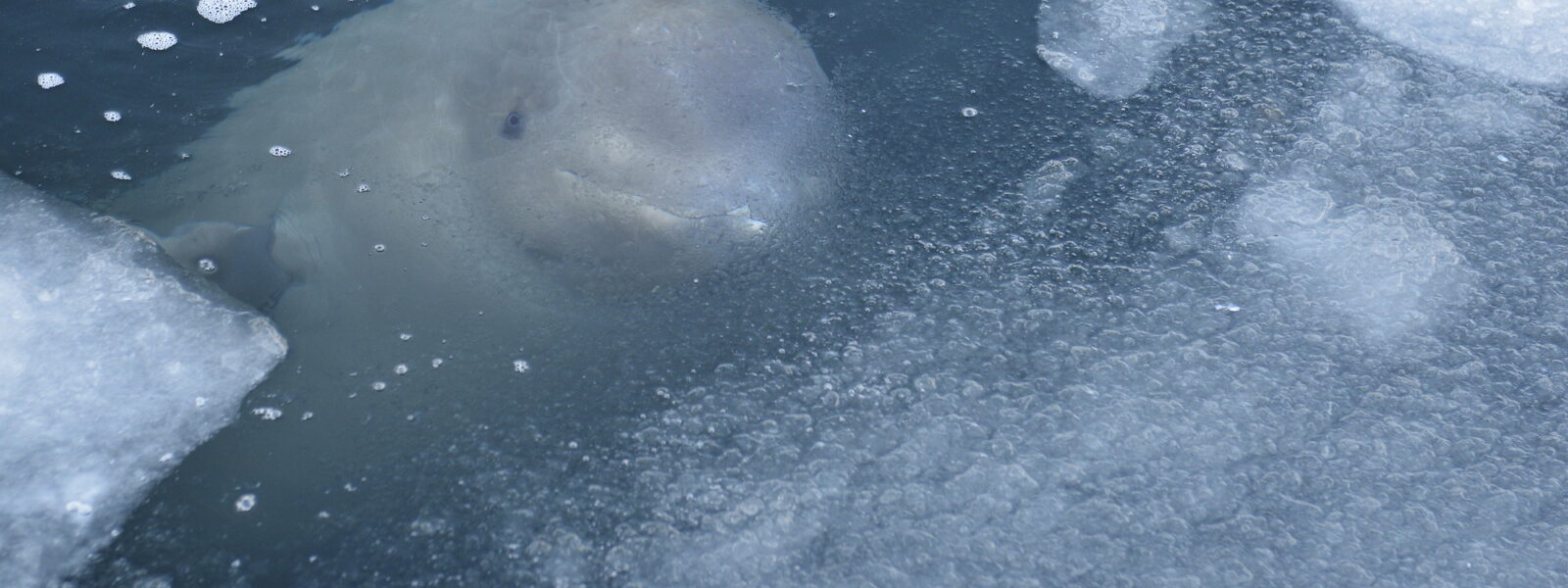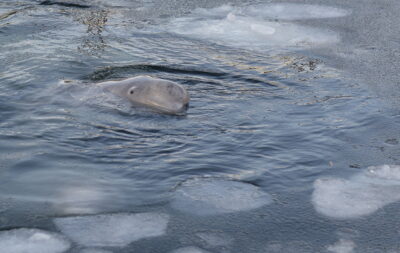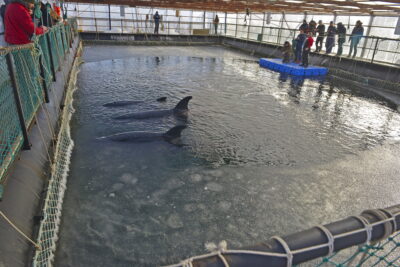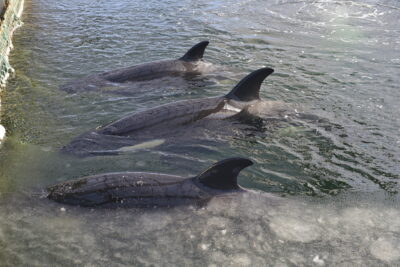

The International Marine Mammal Project of Earth Island Institute is working with Russian conservationists to end Russia’s captures and sales of wild orcas and beluga whales.
At the end of last week, a contingent of Russian government officials and scientists were accompanied by Russian conservationists to inspect the Russian “Whale Prison,” a series of sea pens in Srednyaya Bay, near the east coast city of Nakhodka.
The pens house a reported eleven orcas and 87 beluga whales (with three additional beluga whales reported “missing” from the original inventory) that were caught in the Russian Sea of Okhotsk this past summer. Russian officials have deemed the captures illegal and have blocked the sale of these cetaceans to Chinese marine parks, as well as denying permits for new captures in 2019.
IMMP and local conservationists have urged the government to free these whales and return them to their pods, although given the number of whales and the fact that it is not clear where the original family pods are at this time of year, the process will be daunting.

According to experts on the inspection: “A considerable amount of data was collected, including: skin samples from all 11 killer whales (for genetic research); samples of exhalations and skin smears from damaged areas of the body (to detect any pathogens); water quality samples from the pens; and recordings of vocalizations (or animal speech). In addition a large number of photos and video footage was taken for subsequent thorough analysis.”

A great deal of concern was expressed for one of the orcas that appeared lethargic and was logging at the surface. Many of the orcas showed skin damage, presumably from frostbite and contact with the sharp ice that forms in the sea pens, despite the efforts of the staff of the sea pens to keep the pens clear of ice.

Orcas are not normally exposed to sea ice in their native habitat, nor do wild orcas spend a lot of time at the surface, but these captive orcas surface much more often in the shallow sea pens. The stress of dealing with very cold conditions and sea ice, combined with the stress of captivity and of the proximity to people are very worrisome.
The team also noted that the facility had no means of dealing with sanitary conditions, as the sea pens are exposed to bay water and lacked any barriers or means of disinfecting in case of disease or pollution.
Additional information on the health of the orcas and beluga whales will be forthcoming once the samples are examined.
Our thanks to the officials of the Russian Government, in particular the Border (Coast) Guard Service of the Federal Security Bureau (FSB) of Russia, for their efforts to protect the wild orcas and beluga whales.

Please consider donating to support our work with Russian conservationists to protect the orcas and beluga whales of Russia and help return the captives to their families in the ocean.